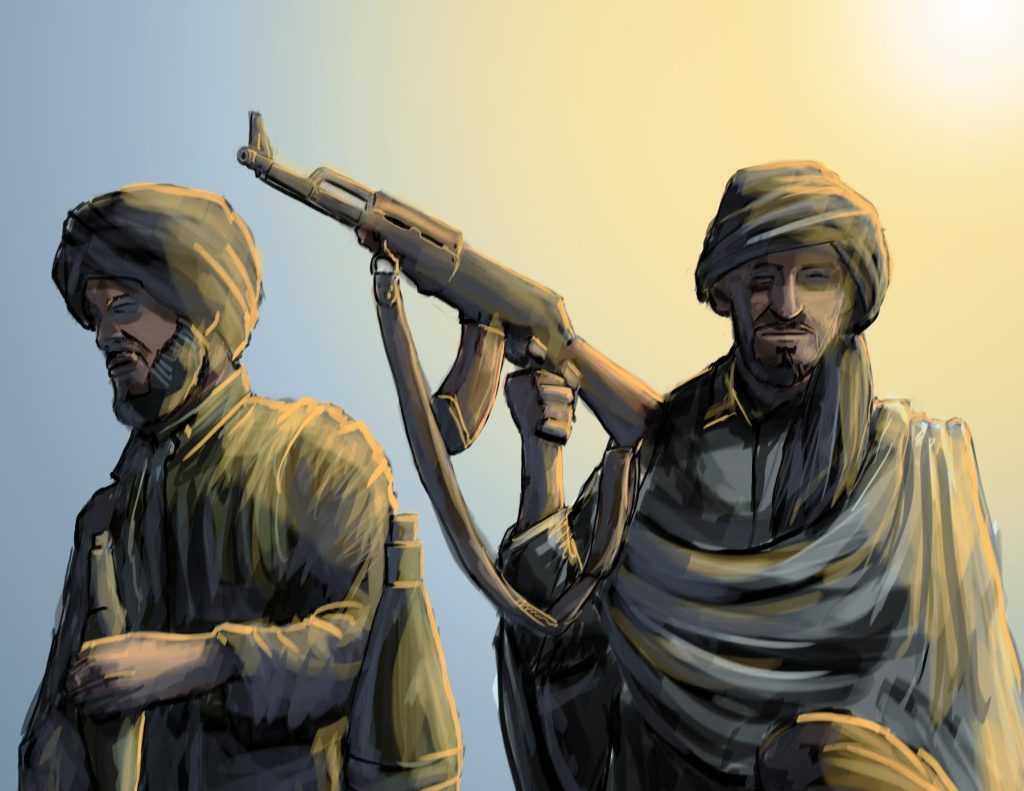The recent statement issued by the banned terrorist group Tehrik-i-Taliban Pakistan (TTP) criticizing the Pakistani government’s actions against violent protests held by the Pakistan Tehreek-e-Insaf (PTI) from November 24 to 27 in Islamabad, has sparked a renewed discussion about the complex relationship between these two entities. While on the surface it may seem perplexing, a deeper exploration reveals a web of shared interests and mutual benefits that arise from their interaction.
The Tehrik-e Taliban Pakistan (TTP) has consistently shown support for the Pakistan Tehreek-e-Insaf (PTI). This alliance may seem puzzling, but it can be understood by examining the ideologies and interests of the both.
The TTP’s primary objectives are to expel Islamabad’s influence from the Tribal Districts of KP and other parts of the Province, implement Sharia law throughout Pakistan, and establish an Islamic caliphate. The group believes that this caliphate will be a model for other Muslim countries.
It is a proven fact that that the Tehrik-e Taliban Pakistan (TTP) receives funding and support from Afghanistan and India. These allegations suggest that both countries have been providing financial, logistical, and military support to the TTP, which has been waging a terrorist campaign against Pakistan. Afghanistan has been accused of providing sanctuary to TTP militants, allowing them to operate freely from Afghan soil. There have also been reports of Afghan intelligence agencies providing funding and logistical support to the TTP.
India is providing funding and support to the TTP. There have been reports of Indian intelligence agencies providing financial support to the TTP, as well as training and logistical support.
Imran Khan’s Stance on TTP
Imran Khan, the former Prime Minister of Pakistan and founder of the Pakistan Tehreek-e-Insaf (PTI), has been sympathetic to the Tehrik-e Taliban Pakistan (TTP). Khan’s stance on the TTP has been a subject of controversy, with many criticizing his approach as being soft on terrorism. Imran Khan has been an outspoken critic of military operations against the TTP in tribal areas. He has argued that such operations are counterproductive and only serve to fuel further militancy. However, this approach has been criticized by many, who argue that it emboldens the TTP and undermines the government’s efforts to combat terrorism.
Imran Khan has also been accused of bringing TTP terrorists back to Pakistan from Afghanistan. This move has been widely criticized, with many arguing that it poses a significant threat to Pakistan’s stability and security.
The Political Landscape
Pakistan has always had a tumultuous political history marked by power struggles. The PTI, led by Imran Khan, has frequently positioned itself as a party of change, resonating with segments of the population frustrated with the status quo. The party’s narrative appeals particularly to the youth and disillusioned voters, who long for a different leadership approach.
Conversely, the TTP has its own grievances against the state, primarily focusing on its aim to dismantle the current political and social structures that they believe do not align with their interpretation of Sharia law. This divergence in legislative goals creates an unexpected alliance rooted in their shared dissatisfaction with the government.
Shared Dissent Against the Government
The TTP has historically positioned itself against the Pakistan Army and the government, often leveraging criticisms similar to those employed by PTI. This alignment of rhetoric becomes particularly salient during moments of civil unrest, such as the aforementioned protests. The TTP views the protests as legitimate expressions of public dissent against a regime perceived as authoritarian.
By supporting PTI’s protests, the TTP seeks to underscore its role as a representative of the aggrieved people and those who resist state control.
Strategic Manipulation
While the TTP’s support for PTI may seem altruistic, it also serves strategic purposes. The group benefits from public attention to PTI’s protests, using the media spotlight to amplify its own message. The unrest generates chaos, which is often advantageous to groups contesting the state’s narrative, allowing them to operate more freely in areas where the government’s control falters.
Moreover, a weakened government may lead to an environment where extremist ideologies proliferate, enabling the TTP to recruit more effectively. PTI protests provide the TTP an opportunity to echo its anti-state sentiments, framing itself as a defender of the people against perceived governmental overreach.
Repercussions for PTI
While PTI may enjoy the public’s frustration with government actions, the posturing by TTP presents risks. There is always the potential for the public to conflate PTI’s intentions with the TTP’s violent agenda, leading to a deterioration of public trust. This relationship may risk alienating moderate members of society who disapprove of any connection (however tenuous) between a political party and a terrorist organization.
The relationship between the TTP and PTI is emblematic of the broader challenges facing Pakistan’s political landscape. Both groups feed off sentiments of disenchantment and frustration with the state, albeit through different lenses. As political parties navigate these complex dynamics, understanding the influence and implications of such alliances will be crucial for future policymaking and public sentiment in Pakistan.


